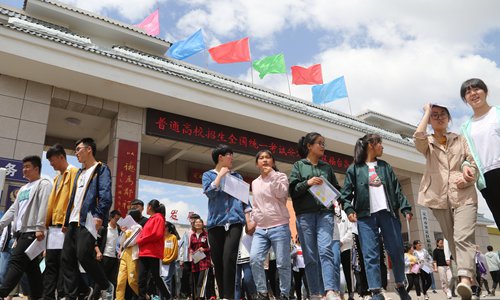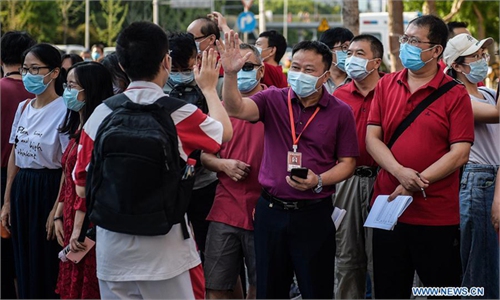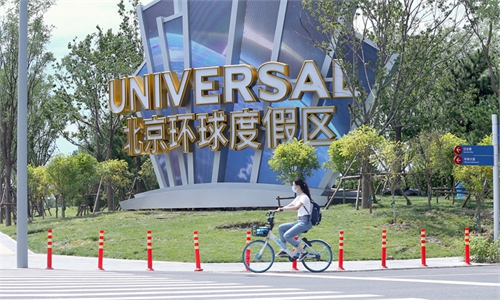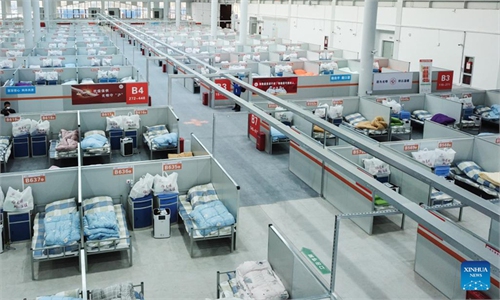
Students walk out of a school where they had sat a 2019 Gaokao exam. Photo: IC
China is prudently preparing nationwide college and middle school entrance exams for around 26 million students amid increasing COVID-19 infections in the country.
The Chinese Ministry of Education held a nationwide online conference on Thursday to stress the importance of anti-epidemic work in schools.
China's national college entrance exam for 2022, also known as Gaokao, will be held on June 7 and 8, the ministry previously announced. About 11 million students are expected to attend the exams.
Nationwide middle school entrance exams will be held around mid-June. Last year, more than 15 million students attended the exams. The number is estimated to be similar this year, according to media reports.
As the exams are approaching, the education ministry has issued a notice to remind Gaokao examinees to follow local anti-epidemic measures while preparing for the exams.
All examinees should strictly follow local anti-epidemic measures and monitor their own health condition 14 days ahead of the exam. Examinees who are still in outside places should get back to where they are supposed to take the exams 14 days before the exams, the notice read.
Cities around the nation have issued detailed measures for students, teachers and students' families over anti-epidemic work during the exams, including the capital Beijing, Tianjin municipality in North China and East China's Jiangsu Province.
For example, Tianjin requires examinees to return to Tianjin 14 days before the exam and take six nucleic acid tests before and after arrival.
A mother surnamed Yang in Jiangyan, Jiangsu, whose daughter is going to take this year's college entrance exam, told the Global Times on Friday that she is required to take a nucleic acid test every 48 hours while her daughter is required to take a test once a week.
The comparatively loose requirements are because Jiangyan, as well as the rest of Jiangsu Province, is not facing a severe epidemic situation even though it is a close neighbor of Shanghai.
Beijing is sparing no effort to contain a potential epidemic, so students are required to report nucleic acid test results every day.
"After May 1, we received nucleic acid tests almost once a day," a parent surnamed Zhang, who is living in a residential community in low-risk Haidian district, told the Global Times on Friday. Zhang said they need to report her son's health status including negative nucleic acid test results and temperature every day to the school. Her son has started to study online since April 30.
Zhang said they have received notices that students who were in regions outside Beijing should return to the capital 14 days before the exams, and the education authorities will disinfect the exam venues in time.
Beijing has also assigned anti-epidemic workers for every examining room. The capital prepared special rooms for examinees who need to be put under quarantine. Exam rooms are also being prepared in centralized quarantine centers and hospitals.
As for students in Shanghai, which has experienced a two-month long battle against COVID-19 since March, they have not received detailed policies from local authorities as the city postponed local exams for about one month.
An English teacher from one of the best high schools in Shanghai told the Global Times on Friday that they have received a questionnaire from the school to ask teachers and students what kind of transportation they will use when the school restarts. "Our school didn't announce the specific date to return to school, but asked us to prepare for it," she said, noting that the school has reminded them to reduce the possibility of contact with more people and to ensure health monitoring for 14 days before returning to school.



